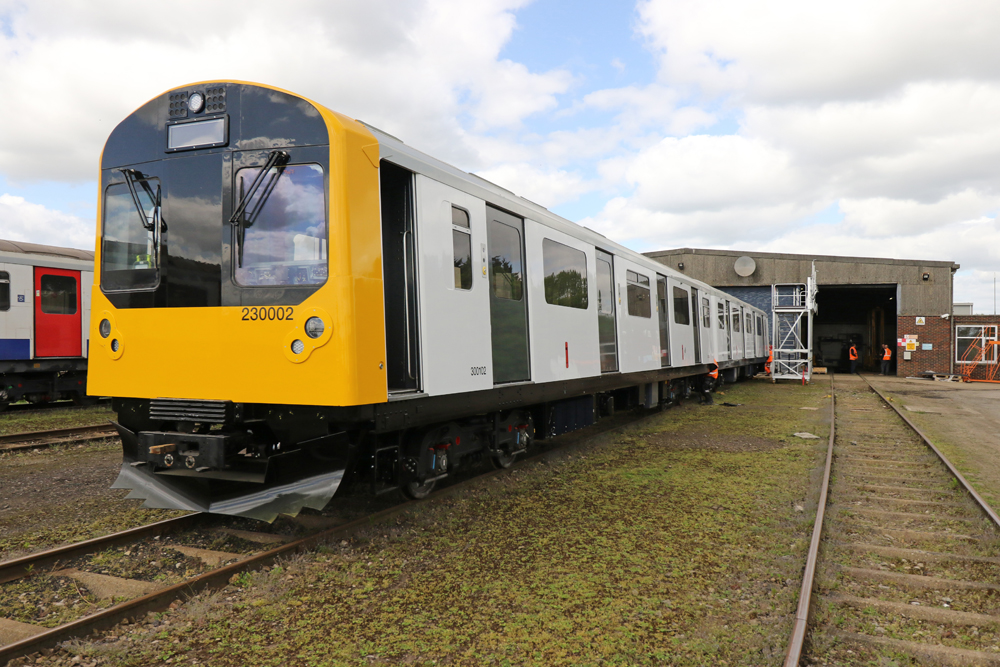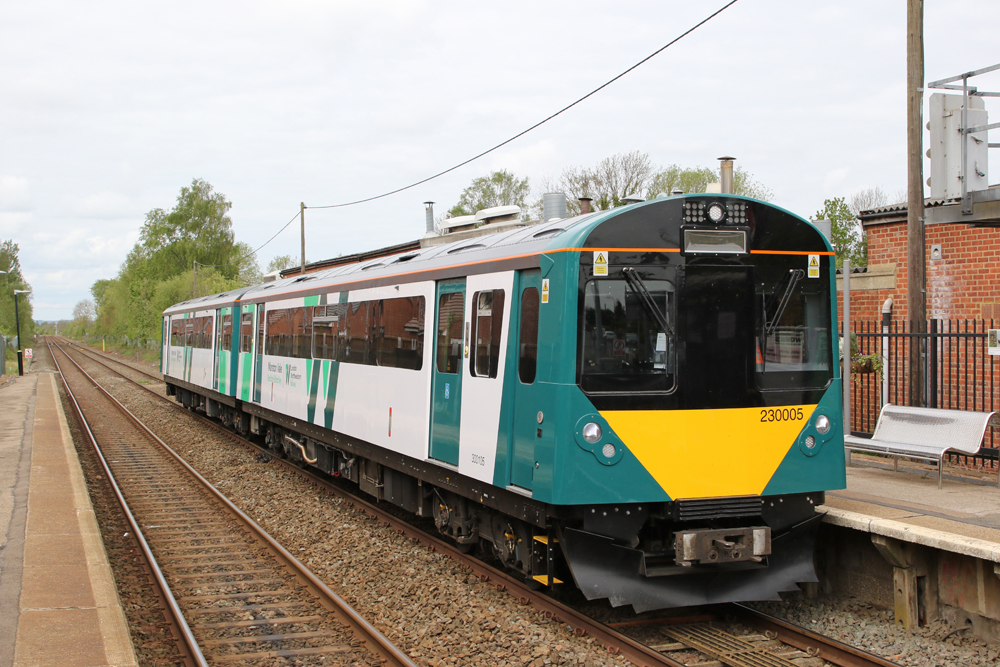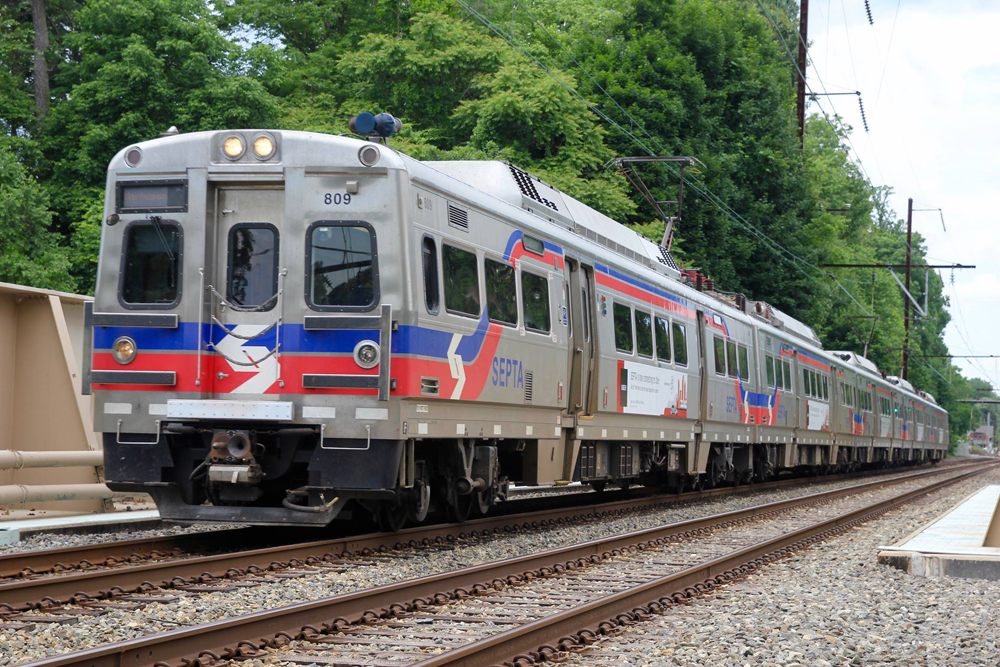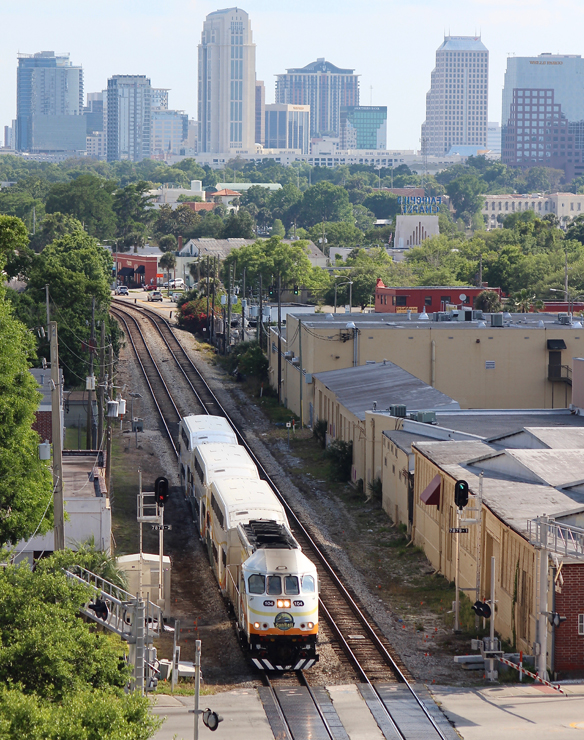
The insolvency administrators trying to sell Vivarail, the British passenger train re-manufacturing company previously backed by Pittsburgh-based Railroad Development Corp., have succeeded in selling the company’s innovative fast battery-charging system. That system, called FastCharge, which will be tested in passenger service in London later this year.
Vivarail was founded in 2013 by British rail industry veteran Adrian Shooter to rebuild former London Tube subway cars as diesel, and later battery or electric, regional trains. RDC became a major shareholder in 2014 and since then had pumped substantial funding into the company. Shortly after the original investment, RDC Chairman Henry Posner told Trains that “in essence, RDC is acting as a venture capital partner to Vivarail.”
Over the next seven years, RDC was the largest single investor in the company owning over 70 million non-voting shares with a nominal value of £1 each; however, RDC and the company’s founders shared the much smaller amount of voting stock equally, meaning the company was not majority-owned by RDC.
In early 2022, RDC decided to limit its future investment in Vivarail, which led the company to begin looking for new investors. However, this was unsuccessful, as the COVID pandemic created less scope to sell the remanufactured trains to British train operators – and the new battery technology, while developed and patented, had yet to attract any orders. As a result, the company was put into bankruptcy in December 2022 [see “British passenger equipment company files for insolvency protection,” Trains News Wire, Nov. 30, 2022], and the court appointed administrators have sought to sell all or part of it.
The announcement in mid-February that British passenger rail operator Great Western Railway has bought the intellectual property and technology relating to the development of high-performance battery and FastCharge technology for use on the British rail network — as well as the demonstration train — means the planned FastCharge trial operation can go ahead. It also means nine of Vivarail’s former employees have new jobs.
The court appointed administrator had first tried to sell the entire company but had received no offers. Since then it has also sold some of the Tube subway cars that Vivarail had stockpiled for future conversion. Some were sold for scrap in early 2023 and another 82 will be sold in the near future. Despite the sales, it is likely the company’s creditors will be left with unpaid debts of around $4 million.
Following the collapse of Vivarail, some of the train fleets it had supplied along with maintenance services have been taken out of service. The diesel-only trains used in central England by West Midlands Trains have been sidelined and will be replaced by older former British Rail DMUs.

Battery train trial back on
Vivarail’s patented FastCharge technology was developed using investment funding from RDC as a fast-charge system to recharge battery-equipped trains. This system can be fitted to existing or new electric multiple-unit trains, and the first 25kV AC EMU to be fitted had been presented to rail and British government officials days before the company announced its insolvency.
Vivarail demonstrated its new all-battery train equipped with the rapid-charging capability at the COP26 climate summit held in 2021 in Scotland; that train has since been shipped to the U.S. for use in RDC’s Pop Up Metro concept [see “Pop Up Metro aims to provide …,” News Wire, Oct. 1, 2021]. A different demonstration train, now owned by GWR, will be used for trial operation in west London. Originally due to begin early this year [see “RDC’s Vivarail to supply all-battery trains …,” News Wire, Feb. 22, 2022], it will now start later.
GWR Engineering Director Simon Green told the media, “There have clearly been some setbacks that mean we will need to review the existing plans and timescales, but we will work to get the project back on track.” He added, “This work is a key part of our commitment to reduce the carbon emissions of our train fleet, with a view to removing all diesel-only traction from the UK rail network by 2040.”














Please correct me if I am wrong, but the only way to fast charge the common Li type batteries today is to front them with a high performance capacitor which can accept high voltage inputs, but trickle charge the Li battery pack over time from the same capacitor.